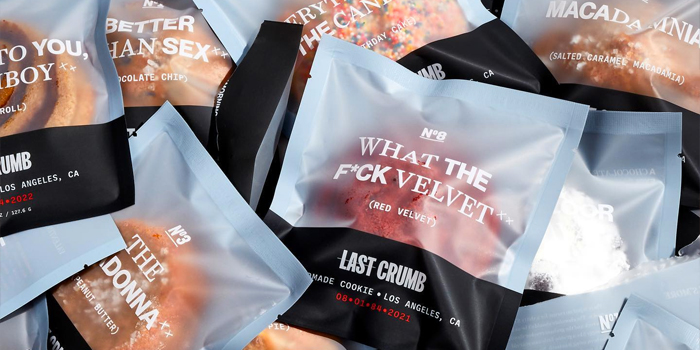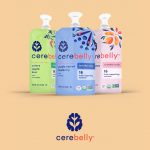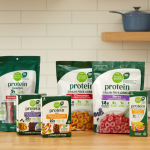Luxury Brand Last Crumb Closes $3M Round To ‘Go on the Offensive’ & Enter Brick & Mortar

Luxury cookie company Last Crumb has closed a $3 million seed round which will help the direct-to-consumer company fund marketing and R&D and move into an “offensive” position ahead of its next growth phase.
The seed round, announced today, was led by Electric Feel Ventures, the venture capital arm of entertainment management company Electric Feel Entertainment, with Chetrit Ventures, hospitality entrepreneur David Grutman, fashion executive Andrew Rosen and Venus ET Fleur founders Seema Bansal and Sunny Chadha also taking part. The company previously raised $1 million last year, just a few months before it began selling product.
“We were able to bring in existing people who’ve been with us from that first fundraise who saw that we did what we said we were going to do over the last nine months,” CEO Mathew Jung said. “Then we were really strategic in bringing on some new people that we thought could be really interesting, both for future expansion and … [who] could help from an advisory standpoint, as we think about what the evolution of Last Crumb is.”
Last Crumb offers a single product: a 12-pack of small-batch, ultra-premium hand-made cookies that retails for $140. With flavors including Better Than S*x (a play on chocolate chip), Netflix and Crunch (cinnamon sugar) and Not Today Mr. Muffin Man (blueberry), each 4.5 oz cookie is designed to be indulgent and shareable. Its signature cookie boxes are available to purchase for only a few hours every Monday, and routinely sell out within hours.

The company has spent the last 14 months largely focused on making operational improvements, including moving into a larger Pasadena-based production facility and bringing on new staff. With its infrastructure revamped, Jung said the company is now ready to change gears and look to the future.
“If the last 18 months were a super pared-down, less-is-more approach … I would say we’re now entering a new phase,” Jung said. “Part of raising the money was [to go on the] offensive, to start to do [more outbound efforts and collaborations] and some of it was defensive, given the economy and everything that’s going on in the world.”
Last year the company began to dabble with one-time offers; its Black Friday Member’s Only subscription, which includes a box of 24 cookies every two months for a year – plus early access to new flavors and a collectable box – sold out at $1,000 each. This Valentine’s Day, the bakery launched its first limited edition box and assortment, a model the company plans to replicate for other holidays.
Ahead of the release of its second cookie collection later this year, Last Crumb has also in recent months done limited test drops for new varieties, such as Florida Man, a key lime pie flavored cookie. These efforts, Jung said, are designed to further develop customer longevity and encourage repeat purchasing.
Having built a dedicated direct-to-consumer base, Jung said the company is approaching its retail launch cautiously. While collaborations with other brands or retailers have been considered, the current plan is to open luxury-oriented, Last Crumb-owned stores in the US at some point in the future, with Jung using Las Vegas as an example of a potential launch market in late 2023 or early 2024.
But neither reduced prices or a smaller pack size are on the docket, Jung said, as supply chain and production costs are only rising. Last Crumb’s core audience of high-income consumers are also seeing less financial impacts on their discretionary spending and aren’t asking for lower prices.
Jung hasn’t denied his interest in an eventual exit for Last Crumb, though he maintains that this may or may not mean an outright sale. While the past year has been about building the ops side of the business, the next is about growing sales and profitability, a goal he believes the company will hit in the next 90-160 days.
“While our goal, yes, has always been to be conservative with cash and to exit the business at some point. We also want to build a business … we aim to be profitable, we’re not trying to be a DTC loss leader,” Jung said.”We believe that we’re building something, regardless of selling it or keeping it or whatever, that will be here for a long, long time.”















![[Updated] Oats Overnights Secures $45M Investment From Astō](https://d2azl42aua8mom.cloudfront.net/wp-content/uploads/2026/01/29172259/2026-01-29-oats-overnights-secures-45m-in-growth-equity-from-square-150x150.jpg)
